The Best Rock Albums of 2019
The following list, sorted alphabetically, includes rock albums found on Pitchfork’s main year-end tally as well as an additional 14 LPs that did not make that list but are just as worthy of your time.
Check out all of Pitchfork’s 2019 wrap-up coverage here.
(All releases featured here are independently selected by our editors. When you buy something through our retail links, however, Pitchfork may earn an affiliate commission.)

Angel Olsen: All Mirrors
With each record, Angel Olsen’s music grows grander and darker, and on All Mirrors, she spreads her leathery wings and nearly blots out the sky. Her most dramatic release yet, All Mirrors telegraphs to us in Andrew Lloyd Webber-sized gestures: When Olsen's voice ascends an octave on “Lark,” the accompanying drum resounds like a cannon aimed at a fortress, and the dive-bombing glissandos from the orchestra mimic debris streaming around her. Over the album’s inky expanse, Olsen tries out an entirely new, gothic corner of her record collection: The Cure’s Disintegration, Cocteau Twins’ Heaven or Las Vegas, Siouxsie and the Banshees. Even at its gauziest, however, Olsen’s music still thrums with anxiety; her version of dream-pop is unsettled by existential terror, which prickles to the surface of “Too Easy” and “What It Is” like fever sweat. –Jayson Greene
Listen/Buy: Rough Trade | Apple Music | Tidal

Big Thief: Two Hands
By the time Big Thief released U.F.O.F. this past May, you might’ve thought they deserved some time off: It was their third album in four years. But not five months later came Two Hands, which is as much an exorcism as its predecessor. Violence ripples through these songs like a vein of quartz—“Rock and Sing” might be a children’s lullaby about lost souls, “The Toy” an intimation of great evil. Warmed by humming amps and the presence of four bodies pressed in close, the album unspools as effortlessly as a campfire session—stray counterpoints, offhand vocal harmonies, tiny details dancing like shadows on the treeline. At a time when it feels like no patch of ground is immune from either flood or fire, Two Hands draws a circle and creates a refuge there. –Philip Sherburne
Listen/Buy: Rough Trade | Apple Music | Tidal

Big Thief: U.F.O.F.
Like white light refracted through a prism to reveal an array of colors, ordinary words and phrases—wrinkled hands, silver hair, clear water—take on new meanings when sung by Big Thief’s Adrianne Lenker. U.F.O.F, the first of two stellar albums the band released this year, sounds at once exploratory and wise, as if they are both seeing the world with fresh wonder while explaining the way things have always been. On bulked-up folky rock songs like “Jenni” and “Betsy,” Lenker’s winding voice twists through a dense weave of vine-like guitars and brittle drums, acting as a sonic anchor while the rhythm swirls around her. The lyrics are elliptical yet striking, so successful at filling you with what feels like an ancient longing that it sometimes feels like you’re discovering a new language entirely. –Vrinda Jagota
Listen/Buy: Rough Trade | Apple Music | Tidal

Black Belt Eagle Scout: At the Party With My Brown Friends
Katherine Paul, aka Portland’s Black Belt Eagle Scout, creates rock music in delicate soft focus. Her second album, At the Party With My Brown Friends, offers a serene glimpse inside her world—or at least a serene-sounding one. Led by a majestic vocal melody, opening track “At the Party” celebrates the strength inherent to Indigenous peoples while still mourning the marginalization that makes it so. “You’re Me and I’m You” pays homage to her mother’s open heart and Native Alaskan heritage, with close-mic’d vocals and brushed drums adding to the intimate feeling. Not every song on the album is as clear in its intention—Paul’s half-finished thoughts provide a dreamy sense of stasis throughout—but all are deeply felt. –Eric Torres
Listen/Buy: Rough Trade | Apple Music | Tidal
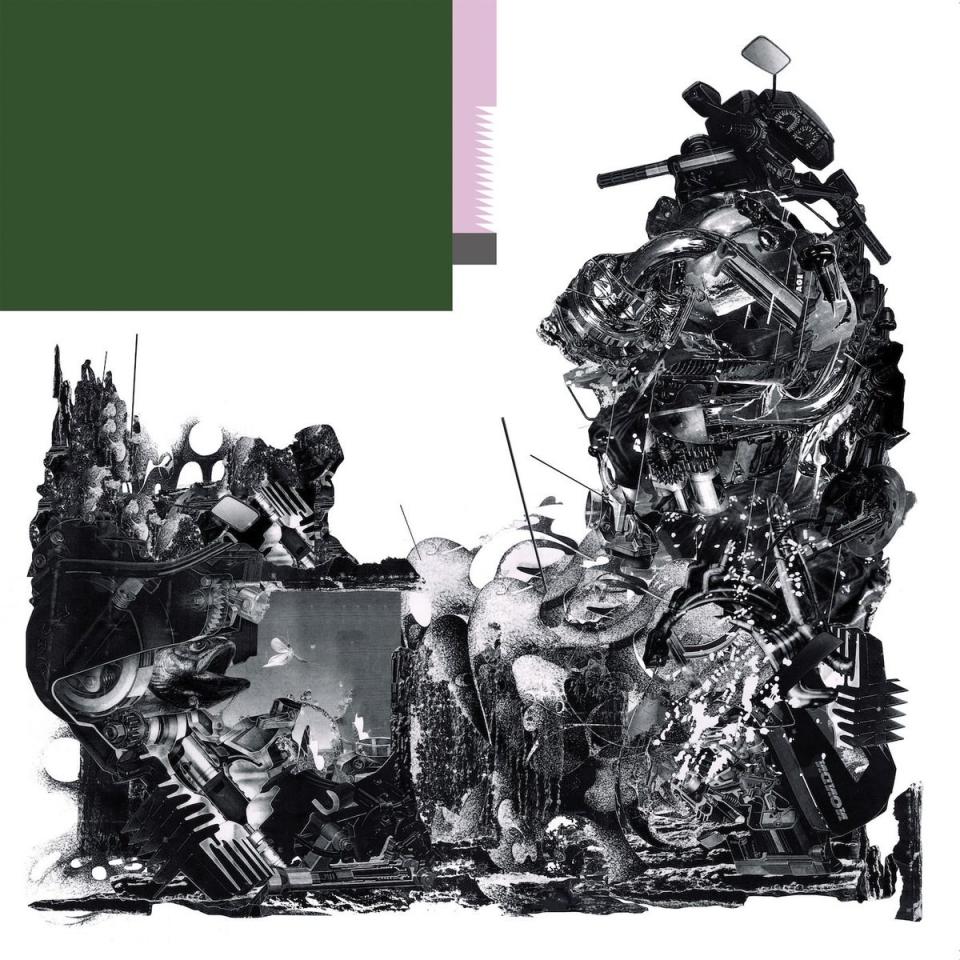
black midi: Schlagenheim
In 2019, black midi taught a new generation of indie kids that prog and punk aren’t as different as sometimes advertised. The London quartet’s debut album, Schlagenheim, juggles flashy technical sophistication and raw fuck-you energy in a way that sometimes inspires older listeners to draw up lists of comparisons. And black midi would be impressive enough if they were “just” this year’s answer to Public Image Ltd.-Slint-Deerhoof-Battles-These New Puritans-Your Example Here. But form-defying freakouts like “bmbmbm” sound so certain they’re the future of guitar music, you’ll probably want to believe it, too. With touches of synth, drum machine, and accordion, Schlagenheim shows these young masters of the herky-jerky starting to grow into their studio-wizard potential. –Marc Hogan
Listen/Buy: Rough Trade | Apple Music | Tidal
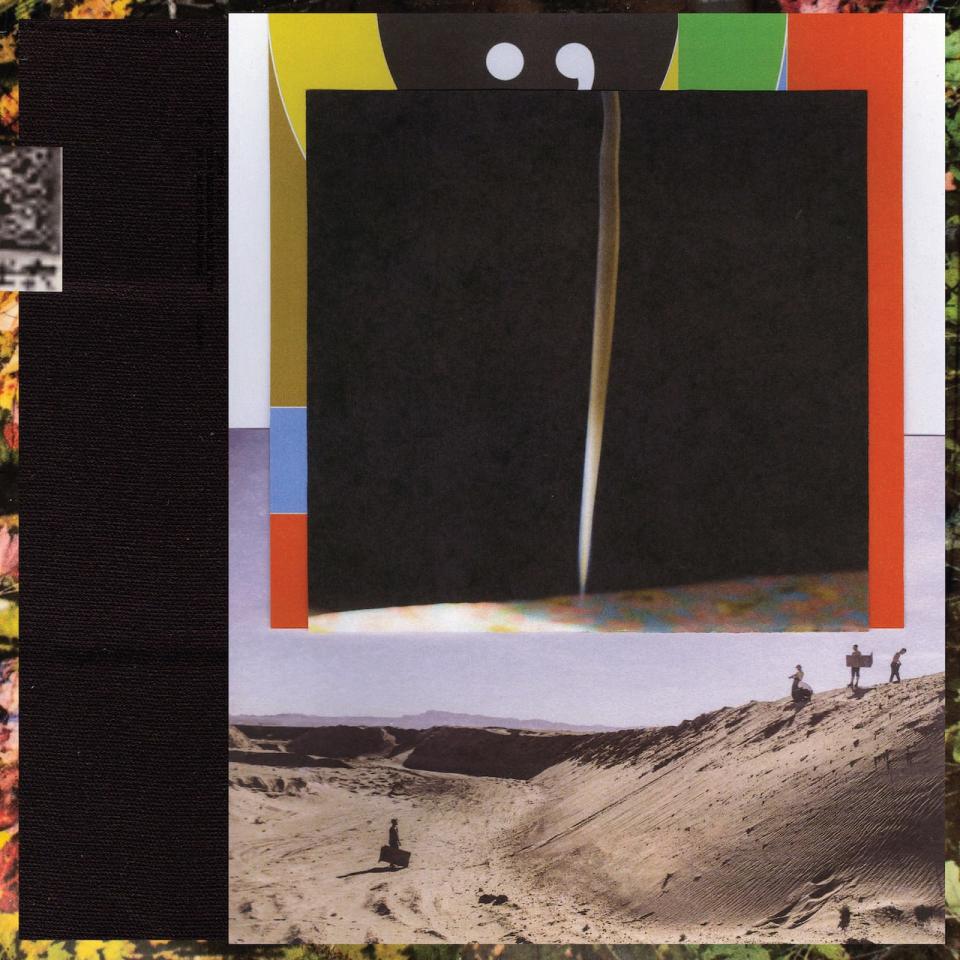
Bon Iver: i,i
In form and function, Bon Iver’s fourth album is an act of protest. You can see its vision of egalitarianism across the LP’s inner gatefold, which shows obscured portraits of the 52 people who helped create the record. You can hear its selflessness in the myriad tones, instruments, voices, and happy accidents that come and go, subverting ego while sidestepping excess. Even the title i,i nods to the Rastafarian idea of “I and I,” of oneness. Of course, Justin Vernon’s elastic howl will always be the catalyst that transforms Bon Iver from just another experimental indie rock project to a quasi-religious cult of emotion, but on i,i, he sounds like he’s simply flowing through a slipstream, his load lightened.
The songs follow an elusive—and affecting—dream logic. With its queasy synths, snatches of stray trumpet, and gas mask imagery, “Jelmore” conjures a landscape from a not-too-distant future that’s been left desolate by climate change. “Sh’diah”—which Vernon began writing the morning after the 2016 election, with a title that stands for “shittiest day in American history”—fights the ugliness of modern politics with an understated call for rationality. “U (Man Like)” is a piano ballad that urges men to do better. “Power has come to me,” Vernon said earlier this year, “but it’s not fun to wield by yourself.” i,i is the solution, a collective effort as endless as it is empathetic. –Ryan Dombal
Listen/Buy: Rough Trade | Apple Music | Tidal
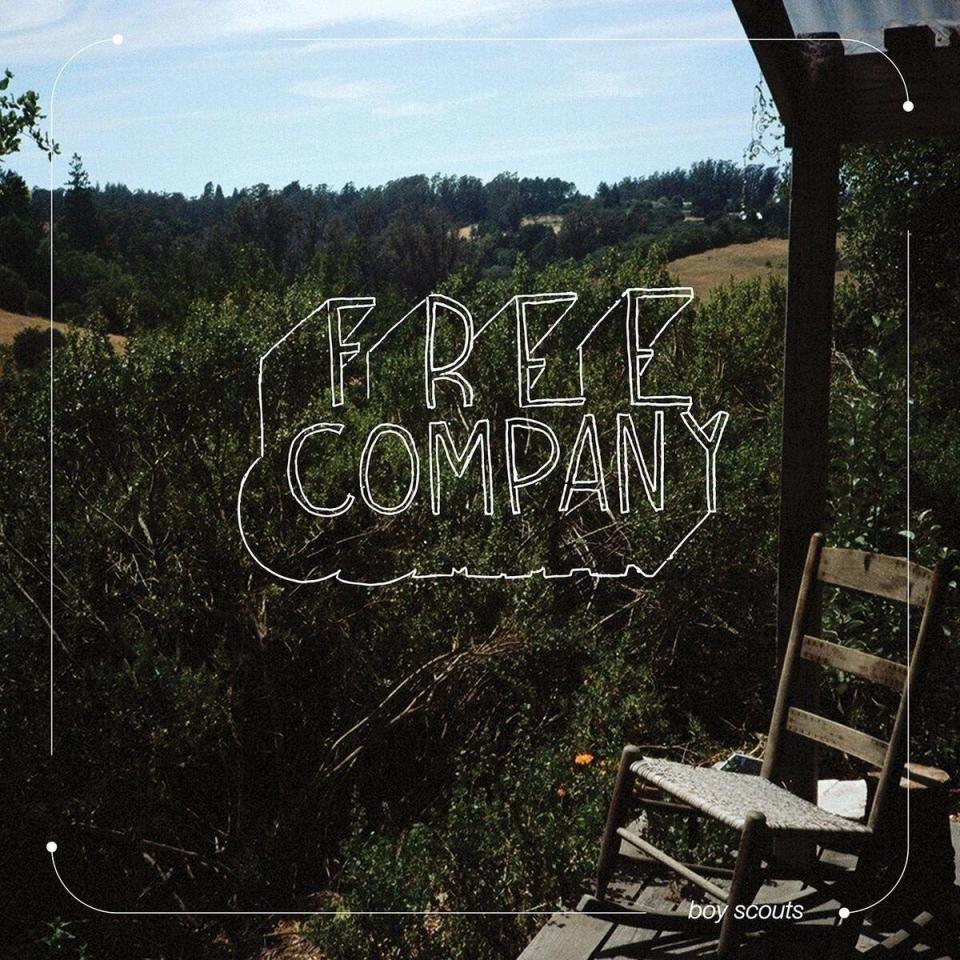
Boy Scouts: Free Company
“Empathetic” is a word that often gets tossed around with music like Oakland’s Boy Scouts—catchy indie rock with simple but thoughtful lyrics and a casual ease to the sound. But real empathy comes from a deeper place: the personal growth that necessitated the songs’ existence. Boy Scouts’ Taylor Vick called her latest album Free Company because she thought of its songs as her company during a rough patch after a breakup. And it’s clear Vick is deeply emotionally invested in the company she keeps: the album highlight is “Get Well Soon,” a masterful nudge to a recovering, possibly-in-denial friend. –Jillian Mapes
Listen/Buy: Rough Trade | Apple Music | Tidal

Brittany Howard: Jaime
Brittany Howard named her debut solo album after her older sister, who died when Brittany was eight years old. While there’s no song explicitly about her on Jaime, there is urgent advice about how to live with the time we’re given: by refusing hatred and spreading love in fractious times; by dismissing inattentive partners and acting on desire. That immediacy pervades the sound of Howard’s solo debut, which is less wedded to genre than her work with Alabama Shakes and Thunderbitch. When the spirit calls for sparkling old soul, it’s there, as on the perennially festive “Stay High”; when Howard addresses a racist attack on her mixed-race parents, she doesn’t smooth over the stumbling piano refrain, nor her stunned delivery. The magnetic scrappiness doubles as a bracing alert. –Laura Snapes
Listen/Buy: Rough Trade | Apple Music | Tidal

Cate Le Bon: Reward
While writing the songs that would become her fifth album, Welsh singer-songwriter Cate Le Bon spent a year studying furniture-building at an English architecture school, living alone in a cabin in England’s rural Lake District. On Reward, Le Bon proves herself to be a canny architect of another kind: one gifted at making dense sonic arrangements feel somehow weightless. These songs are intimate and personal, with Le Bon carefully leveraging a broader, deeper palette of instrumentation than on past work. Elastic, off-kilter guitar lines carry the prickly “Mother’s Mother’s Magazines,” while “Sad Nudes” floats along slack percussion and metallic adornments. Her layers of guitars, synths, saxes, and more make Reward feel lavish but never overstuffed. With everything in its just-right place, Le Bon's precise touches on Reward are prizes in their own right. –Allison Hussey
Listen/Buy: Rough Trade | Apple Music | Tidal

Chai: PUNK
PUNK, the second album from Nagoya, Japan’s Chai, is as anthemic and glossy as it is insurgent. Throughout the record, the quartet subtly distort their sugar-pie group vocals, whisking them into frenzied disco-grrrl guitars, hectic brass bleats, and fluorescent electro blips. They pierce the conformist pressures of contemporary Asian femininity without clichès or sloganeering: “Too much makeup/Just lips and eyebrows all set,” chirps frontwoman Mana in Japanese. “Glossy yellow skin/Have nothing more than this.” Looking like what society demands of you isn’t weakness, they seem to say—it just means you can start your fire within its walls. –Stacey Anderson
Listen/Buy: Rough Trade | Apple Music | Tidal

Charly Bliss: Young Enough
Young Enough, the second album from Brooklyn alt-rockers Charly Bliss, is a vibrant chronicle of personal recalibration. Across 11 arena-ready tracks, singer/guitarist Eva Hendricks and her close-knit band turn an abusive relationship and the attendant fear-shame spiral into a kiss-off masterpiece, glittering with hope and spiked with synths. Like a lot of great pop music, the details are sharp but the songs strive to feel universally cathartic. “We’re young enough/To believe it should hurt this much,” Hendricks sings on the cinematic title track, knowing just how wrong that notion is now. –Jillian Mapes
Listen/Buy: Rough Trade | Apple Music | Tidal

Control Top: Covert Contracts
The first album from Philadelphia’s Control Top works with brutal efficiency. Taking cues from the insistent rhythms of the Slits and the bright riffs of new wave, the trio’s strident yet melodic post-punk is an antidote for anyone feeling oppressed, exhausted, or just plain stultified by modern life under a capitalist patriarchy. Bassist/singer Ali Carter’s lyrics fuel the kind of motivating anger that cuts through political disillusionment with surgical sharpness: “We’re in a black hole/Of our own making,” she screams on “Black Hole.” “We have solutions/Yet no one’s debating.” The point of Covert Contracts isn’t that Control Top have all the answers, it’s that they know something is very wrong—and they’re willing to stay pissed about it. –Anna Gaca
Listen/Buy: Rough Trade | Apple Music | Tidal
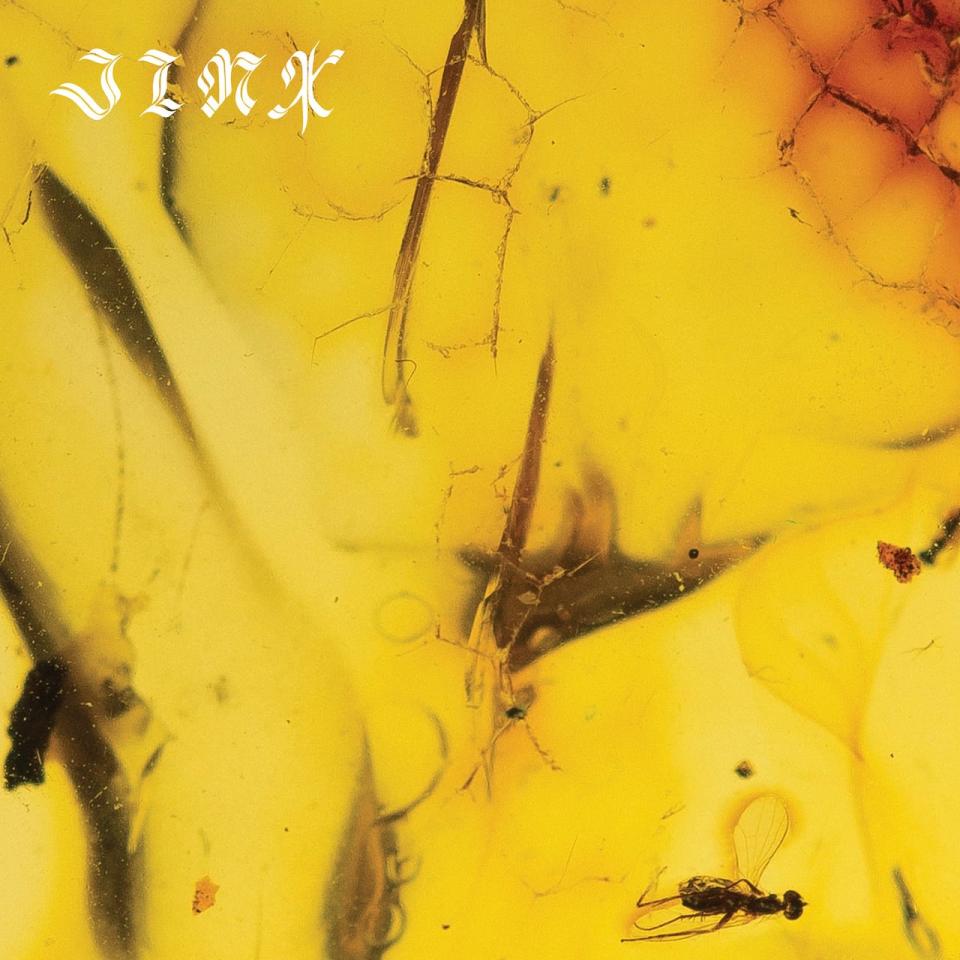
Crumb: Jinx
Crumb’s debut LP has some hallmarks of a band that would be popular in 2019: jazz-influenced psych rock with crisp drums that brace an otherwise warbly, lo-fi aesthetic, complete with honeyed vocals dripped into the mix. But listening past admittedly excellent singles like “Nina” and “Fall Down” reveals a group with greater ambitions than simply summoning a vibe. Fakeouts and knotty grooves abound on “The Letter,” while the languid pace and haunting atmospherics of “And It Never Ends” feel calmly oppressive, like King Krule taking a stab at Kid A. The Brooklyn quartet may flirt with modern stoner rock tropes, but Jinx doesn’t let you just relax. –Noah Yoo
Listen/Buy: Rough Trade | Apple Music | Tidal
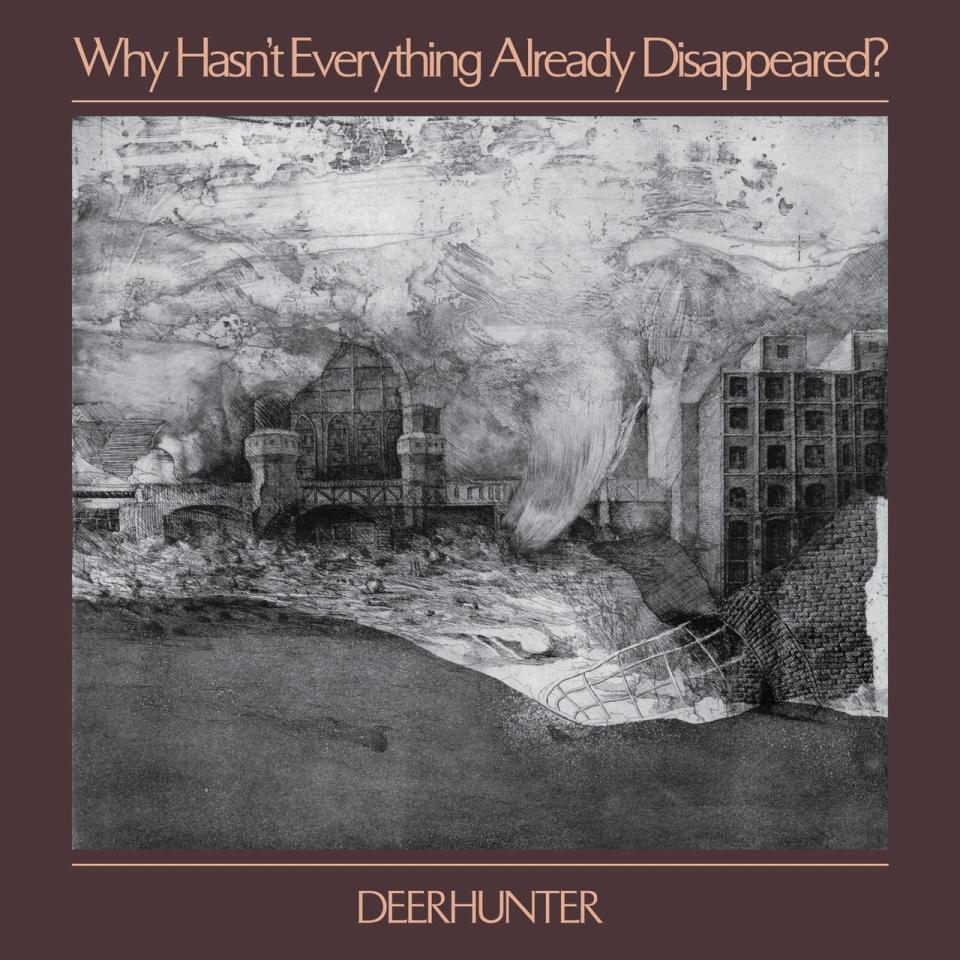
Deerhunter: Why Hasn’t Everything Already Disappeared?
Deerhunter albums have always reflected the changing state of frontman Bradford Cox. The band’s first album in four years—and first since the 2016 election—finds the famously mercurial singer in a contemplative mood: “What happens to people?” he asks. Apparently everything, and nothing, all at once. Culled from recent writing sessions as well as drafts from the Microcastle and Halcyon Digest eras, Why Hasn’t Everything Already Disappeared? features the sort of intricate, expertly recorded indie rock we’ve come to expect from Cox and co. Though co-producer Cate Le Bon’s dramatic hallmarks are present in the horn flourishes of “No One’s Sleeping” or the pointed marimba on “Tarnung,” they never overpower the band’s long-simmering chemistry. Nothing is masked by reverberant textures; with every wry turn of phrase, you can feel the music shifting to meet Cox’s new outlook. He’s evolved, in his own way, and Deerhunter have too. –Noah Yoo
Listen/Buy: Rough Trade | Apple Music | Tidal

DIIV: Deceiver
The first time Zachary Cole Smith tried to make an album about getting sober, the DIIV frontman wasn’t ready to be honest—with fans, with the people around him, or even with himself. A year after releasing 2016’s beloved Is the Is Are, Smith re-entered treatment for heroin addiction. A stretch of radio silence followed, before more and more tour dates gave way to this summer’s announcement of Deceiver. Recorded with producer Sonny Diperri, who previously engineered for My Bloody Valentine, DIIV’s third album draws deeply on the gossamer textures and double-tracked vocals that define shoegaze. Gone is the surface-level catchiness that drew listeners into the first two DIIV LPs, replaced by intricate songwriting that reveals itself further with each listen. With Deceiver, DIIV seek to reinvent themselves for themselves, and nobody else. –Noah Yoo
Listen/Buy: Rough Trade | Apple Music | Tidal

Girlpool: What Chaos Is Imaginary
On What Chaos Is Imaginary, Girlpool’s Avery Tucker and Harmony Tividad push past any lingering codependent habits from their teenage years of writing together. Following two fairly lo-fi records of eerily intertwined introspection, they find their own distinct voices within heavier soundscapes of emo-tinged slowcore and distorted dream pop. Though their songwriting continues to be veiled in poetic abstractions, they dig deeper into surrealism and careful uncertainty here. “Create the vague you need,” Tucker murmurs on murky closer “Roses,” doing just that. –Quinn Moreland
Listen/Buy: Rough Trade | Apple Music | Tidal

Jenny Lewis: On the Line
As West Coast fabulists go, Jenny Lewis is in a league entirely of her own, with two decades’ worth of music that pulls back the velvet curtain on California’s most lovable weirdos. On her finely wrought fourth LP, the former Rilo Kiley leader spins more novelistic tales about stragglers, addicts, and heartbreakers. It’s her boldest album to date, not only because she recruited a who’s-who of players—including Beck, Ringo, Don Was, and more—to help her craft a lush backdrop of vintage rock, country, and soul, but also because she knows how to write directly to the chest. Lewis reveals the human nature at the core of her characters even when it’s unseemly, never judging people’s vices or decisions. She has better things to do anyway, like raising a glass while the world burns in “Hollywood Lawn.” –Eric Torres
Listen/Buy: Rough Trade | Apple Music | Tidal

Julia Jacklin: Crushing
Fresh out of a long-term relationship, Sydney singer-songwriter Julia Jacklin funneled a series of small epiphanies about how to be into her second album, Crushing. “I don’t want to be touched all the time/I raised my body up to be mine,” the folk-rocker declares on the upbeat highlight “Head Alone.” A number of the songs beautifully capture what it’s like to inhabit your own (single) body again, or suggest how to convert love felt for an ex into something else (eventually), always with a focus on Jacklin’s warm-milk voice. Honest and nuanced, Crushing ends up being a fortifying declaration of self-possession. –Quinn Moreland
Listen/Buy: Rough Trade | Apple Music | Tidal

Kim Gordon: No Home Record
After rewriting rock’s rulebook with Sonic Youth, establishing herself as a star in the art world, and writing a memoir, Kim Gordon finally got around to making her first solo album. For No Home Record, she worked with producer Justin Raisen, whose credits include the Kim-indebted brooder Sky Ferreira and experimental shapeshifter Yves Tumor, and the pair conjure a dissonant, avalanche-sized sound. “Murdered Out” is three-and-a-half minutes of a patient bass loop being continuously, relentlessly sandblasted by one thing after another: distorted guitar, encroaching noise, and Gordon’s roar, the strongest blast of all. “Get Yr Life Back” sits uneasily atop tensely arranged found-sound; “Sketch Artist” seems to be tearing itself apart; “Paprika Pony” rides a minimal toy-piano rap beat that sounds like it was created by the world’s most sinister toddler. No Home Record shows that the 66-year-old Kim is still hellbent on chasing new musical ideas, wherever they may lead. –Katherine St. Asaph
Listen/Buy: Rough Trade | Apple Music | Tidal

Mannequin Pussy: Patience
For their first album with legendary pop-punk label Epitaph Records, the Philadelphia quartet Mannequin Pussy swap fuzz-heavy thrashers for melodic, grand anthems of heartache and regret. On “Drunk II,” a raging post-breakup lament, frontwoman Marisa Dabice drowns her hurt in alcohol and wry jokes, but there’s no mistaking the depth of her emptiness. The pop-forward “Who You Are” finds Dabice tackling self-loathing, settling on a kind of acceptance that sounds simple but is anything but. And she sings of a fledgling romance on the closing “In Love Again,” which wraps around her like a pair of arms while guitar riffs shoot off fireworks—a surprise happy ending to an album that turns anguish into high drama. –Madison Bloom
Listen/Buy: Rough Trade | Apple Music | Tidal
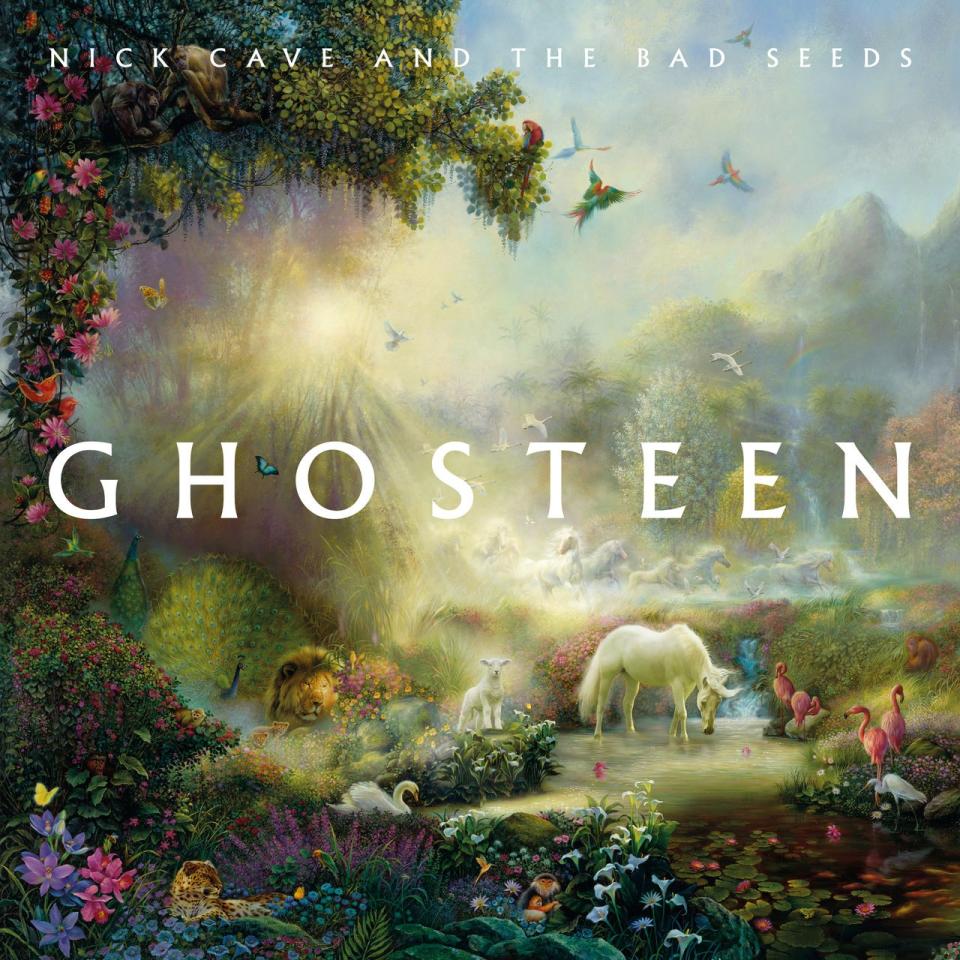
Nick Cave & the Bad Seeds: Ghosteen
You become a parent with the wish that your kids outlive you. But what happens when that hope is suddenly dashed? Nick Cave confronts this reality on Ghosteen, the first album he wrote and recorded in full after the tragic accidental death of his teen son, Arthur. It’s a record unlike anything else he’s made with the Bad Seeds across the last 35 years.
On "Hollywood," the double LP's 14-minute closing track, Cave viscerally summarizes his broken heart. "The kid drops his bucket and spade/And climbs into the sun," he murmurs before the track’s steady bassline suddenly glitches, as if the needle of a turntable has hit a bad groove, and Cave begins to keen in falsetto. Ghosteen abounds with stark moments like this that reveal the raw heart of grief. To sit with it can be almost unbearable, and yet Cave—with the same talent he’s loaned to many other dark topics—takes the harshness of life and uses it to cleave his way to the truth of being human. Singing his sorrow so nakedly, with so little reserve, Cave asks the world to bear witness to the love he’s shared and his cavernous, neverending loss. –Sasha Geffen
Listen/Buy: Rough Trade | Apple Music | Tidal

Nilüfer Yanya: Miss Universe
Nilüfer Yanya plays her guitar the way some people pick at their nails—as if she wouldn't know what to do with her hands if she stopped. Along with her rich voice, Yanya’s fidgety guitar is one of the few binding threads tying together her virtuosic, post-genre smear of a debut. With the poise of Sade’s Love Deluxe and the zapped attention span of Pavement’s Wowee Zowee, Miss Universe triple-axels between silky soul, smoldering jazz, and ripping alt-rock—and then adds hybrids like “Tears,” a song that seems to imagine what Timbaland might have sounded like if he made ’80s new wave records. It’s an album that never stops openly wondering how cool it might be if it tried to be something completely different. –Evan Rytlewski
Listen/Buy: Rough Trade | Apple Music | Tidal

Oso Oso: Basking in the Glow
“I got two souls fighting for the same spotlight,” Long Island emo hero Jade Lilitri sings on the opening track of his third album as Oso Oso, Basking in the Glow. One soul seems devoted to self-pity and the other to splendor, and throughout the album, this internal battle plays out via guitar rock that’s marked by a dappled radiance. “Priority Change” swaggers with shy pride in its chord changes, while Lilitri complains of “being trapped in binary code.” “Dig” gets the balance just about right, with a gloriously smeared chorus in which he’s “still reeling from the mess I made.” Gems like “Impossible Game” find drama in the effort to invest meaning in well-worn metaphors of open roads and unknowable partners. It’s self-conscious stuff, to be sure, with highlight “Wake Up Next to God” reveling in the G-force of self-torment. But Lilitri shows why that spotlight—that glow to bask in—is worth fighting for. –Jesse Dorris
Listen/Buy: Rough Trade | Apple Music | Tidal

Peaer: A Healthy Earth
Midway through their third album, the members of Brooklyn trio Peaer briefly imagine a peaceful alternate reality. “In another universe, we have a healthy earth, we understand the worth of a life,” warbles frontman Peter Katz on the slow-building “Multiverse.” It’s a nice daydream, but it’s ultimately not where the math-rockers reside. They spend their time wrestling with quandaries small and large, from a confusing kind of romantic attraction to feeling crushed by the relentless pace of the world, all the while exploring similar leaps of scale sonically. Tightly-knit slowcore reveries swell into post-punk explosions, barely-there melodies tangle to the point of dissonance. Incisive and meticulous in nature, Peaer make the case that even a kind of shitty life is worth examining. –Quinn Moreland
Listen/Buy: Rough Trade | Apple Music | Tidal

PUP: Morbid Stuff
The third full-length from Toronto foursome PUP is, in many ways, a modern pop-punk classic: packed with simple but hyper-energetic riffs, unafraid to marry an irreverent pun like “Bloody Mary, Kate and Ashley” with a demand to know whether the supernatural might be real. At the same time, the album is almost unbearably self-aware. When lead singer Stefan Babcock runs into an ex-girlfriend at the supermarket, on “See You at Your Funeral,” he asks how she’s doing, then quickly retreats: “Not that it’s any of my business/But you know me, I’ve always been a little masochistic.” And when he sneers, “Just ’cause you’re sad again, it doesn’t make you special at all” in the chorus of “Free at Last,” he’s addressing himself as much as anyone else. Tragic and hilarious and self-absorbed and cathartic all at the same time—that’s PUP for you. –Anna Gaca
Listen/Buy: Rough Trade | Apple Music | Tidal

Purple Mountains: Purple Mountains
We’re used to confronting a work of crushing sadness after the artist who made it has reached a better place. Stories of depression and despair are easier to take with full knowledge of the happy ending. Purple Mountains, the final album of new music from David Berman, released 26 days before he took his own life at age 52, offers no such luxury. A number of lines and song titles—“The dead know what they are doing when they leave this world behind,” from “Nights That Won’t Happen,” or “No way to last out here like this for long” from “All My Happiness Is Gone”—seem to point at what was to come, and to hear them in a certain mood is to be emotionally overwhelmed.
But it’s important to remember what Berman’s friends at Drag City said following his death: His music didn’t predict his death; it was written despite his depression. The best way to hear these songs now is to listen to them in that spirit—to assume Berman was fighting fire with fire. He searched for the perfectly turned phrase to articulate pain because it helped him feel less of it; he added jokes because the absurdity of life is funny. His parting gift turned out to be one of his very best records. –Mark Richardson
Listen/Buy: Rough Trade | Apple Music | Tidal

(Sandy) Alex G: House of Sugar
Since first emerging as a prodigious one-man songwriting machine earlier this decade, Alex Giannascoli has remained tapped into an ever-flowing stream of idiosyncratic excellence. House of Sugar is his most ambitious and immersive album yet. Moving beyond the haunted Americana of 2017’s Rocket, these 13 songs offer meticulous portraits of addiction, greed, and obsession. Inescapable spirals of desire—whether for control, companionship, or instant gratification—are manifested as voids desperate to be filled.
Giannascoli’s tendency to enshroud his vulnerabilities in warped guitars and pitch-shifted vocals makes the straightforward candor of album standout “Hope” all the more devastating. As he laments the overdose and subsequent death of a good friend, he reaches a humble conclusion: “Why write about it now?/Gotta honor him somehow.” This quiet tribute to the darkest of realities crystalizes what makes Giannascoli’s songwriting so poignant: a resounding humanity. –Quinn Moreland
Listen/Buy: Rough Trade | Apple Music | Tidal

Sharon Van Etten: Remind Me Tomorrow
After the lonesome folk of her 2009 debut, Sharon Van Etten’s subsequent albums mostly offered modest tweaks to a familiar strain of heartland-flavored indie. But Remind Me Tomorrow cracks her style open like a geode: The roadhouse soul of “You Shadow” is halfway between Motown and Massive Attack; “Seventeen” arrives decades too late for the John Hughes closing credits it deserves; “Jupiter 4,” titled after a vintage Roland synthesizer, sounds like a gothic take on slowcore. It all makes for a fitting soundtrack for starting over. Among all the record’s big themes—the brush with death recounted on the album’s opener, the closing letter to her child—it’s the little details that stick out, like a line of dialogue that gives “Comeback Kid” the feel of a finely turned short story. Like a freshly polished lens, the album’s eclectic production only pulls Van Etten’s songwriting into sharper focus. –Philip Sherburne
Listen/Buy: Rough Trade | Apple Music | Tidal
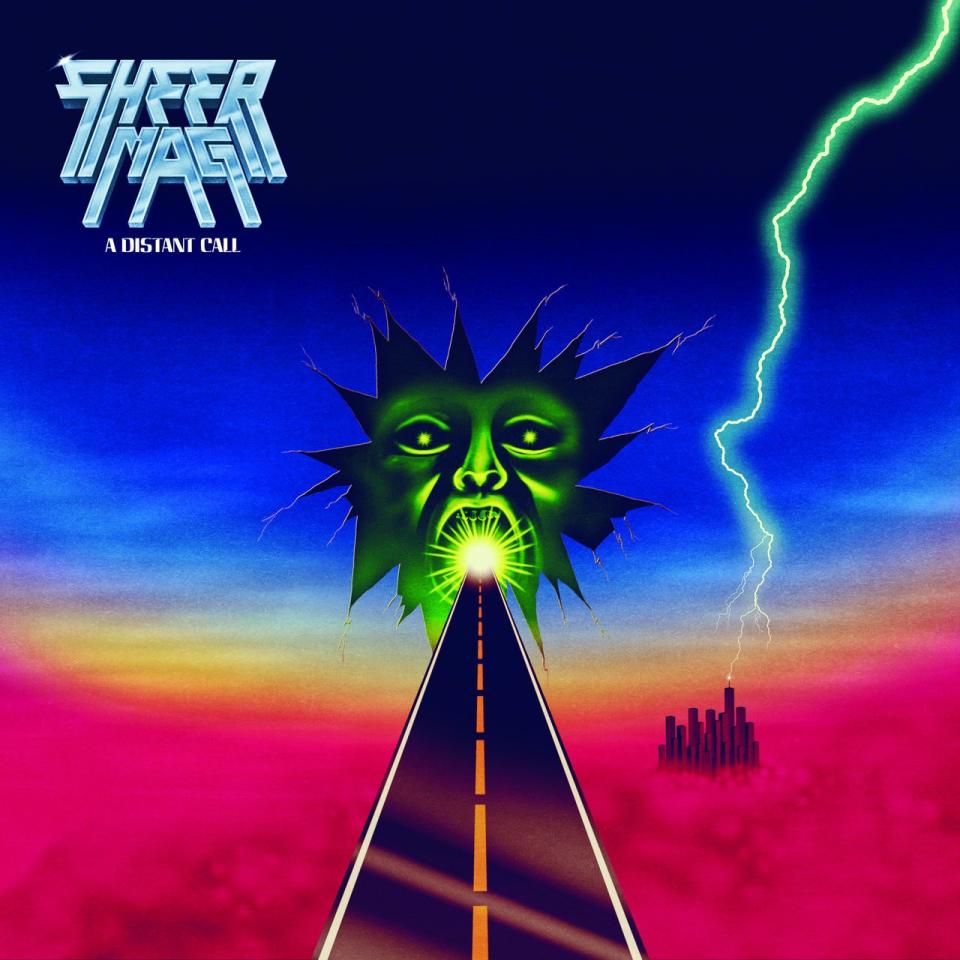
Sheer Mag: A Distant Call
Sheer Mag crashed into the indie consciousness five years ago with surly abandon, thanks to their Thin Lizzy-style anthems and their true punk heart. The Philadelphia four-piece’s latest album, A Distant Call, feels as storm-tossed as ever, only now with more old-school-metal riffs and some unexpected fine-tuning. The production quality is less lo-fi and the arrangements are more multi-dimensional, resulting in the sharpest-sounding Sheer Mag release yet. Tina Halladay’s shredded howl remains the group’s North Star as members shift between barnburners and slow-builders, often fueled by present-day ills. They throw a light on the refugee crisis in “Unfound Manifest,” rail against fat-shaming on “The Right Stuff,” and put a name to widespread government corruption with “The Killer.” –Eric Torres
Listen/Buy: Rough Trade | Apple Music | Tidal

Vampire Weekend: Father of the Bride
Vampire Weekend ambled away from the spotlight for a half-decade or so, but even as the delays mounted for the follow-up to their 2013 masterpiece Modern Vampires of the City—and even as Rostam Batmanglij, long thought to be their behind-the-scenes mastermind, left to pursue other projects—they returned on Father of the Bride as if they’d just stepped out of the country club for a breath of sea air. Nothing, it seems—neither time, nor age, nor a shifting cultural landscape—can chip away at their self-delighted gleam, their garish sophistication, their heartbroken contentment.
Seasoned experts at locating the expanding borders of “cool” and then working just outside them, here Vampire Weekend decide that they are a jam band, with all of the fretless bass and weightless Jerry Garcia guitar solos this implies. Of course, they sound goofy at first. And of course, when the surface dressings fall away, Ezra Koenig is writing as searchingly as ever about lasting happiness, low-grade fear, and the certainty that if bad times are here, worse times are on the way. No matter how long they go away, Vampire Weekend will always return perfectly out of time. –Jayson Greene
Listen/Buy: Rough Trade | Apple Music | Tidal

Weyes Blood: Titanic Rising
Titanic Rising is vintage-sounding music for people who don’t want to live in the past. On her fourth album as Weyes Blood, L.A. singer-songwriter Natalie Mering coos laughably old-fashioned lines like “treat me right, I’m still a good man’s daughter” while referencing the cosmic loneliness of modern dating. You can parse out the weight, hope, and humor of Mering’s poetry, or you can sit back and let her dulcet tone and excellent taste in George Harrison-esque slide guitar wash over you. But even going the comfortable route, she is constantly disrupting her own ’70s soft rock pastiche with sounds that represent the future—space-age synths, satellites trying to connect. This simultaneous backwards-forwards vantage point leaves Mering well-positioned to consider our current moment—even if she sounds almost nothing like it. –Jillian Mapes
Listen/Buy: Rough Trade | Apple Music | Tidal
Originally Appeared on Pitchfork

